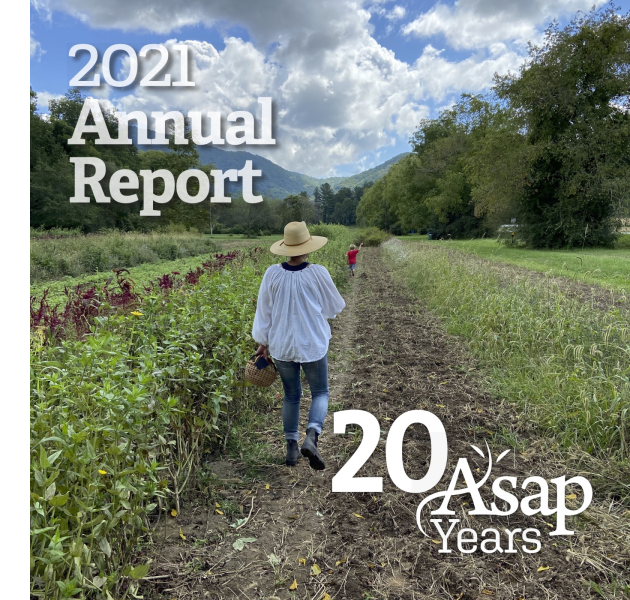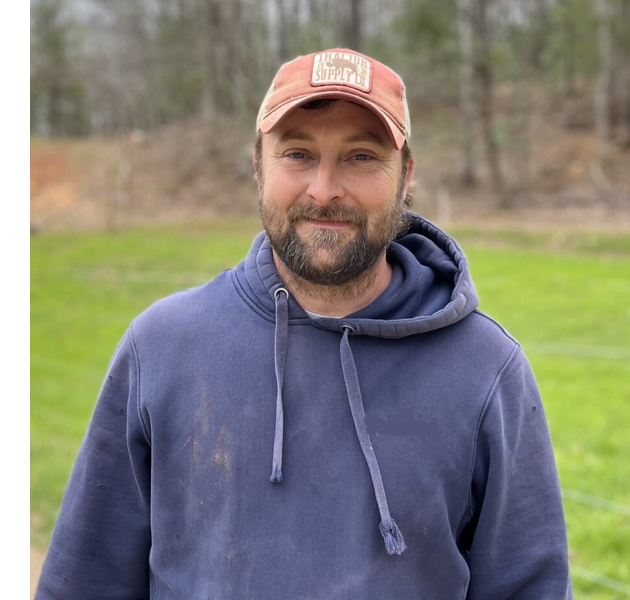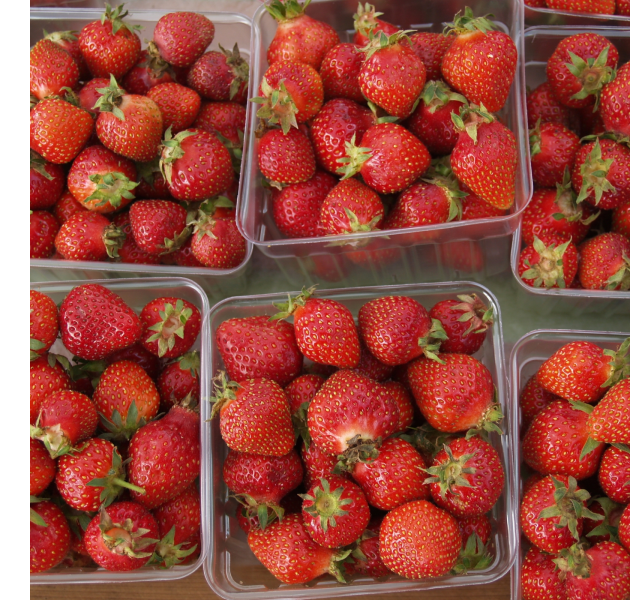|
|
|
monthly news from ASAP | APRIL 2022 | asapconnections.org
|
| |
|
|
The 2022 Local Food Guide Is Out!
|

The 2022 Local Food Guide, ASAP’s annual free publication for finding local food and farms, is out! You can view the digital version of the Guide here. Or look for the print version at farmers markets, visitors centers, libraries, grocery stores, and other local businesses starting next week.
ASAP published the first Local Food Guide 20 years ago, the year ASAP officially incorporated. The 2022 edition includes a look back at some of the changes over the past 20 years with stories from SMM Farm and Moreno Family Farm (pictured on the cover), Dillingham Family Farms, Farside Farms, and Sunburst Trout Farms.
The Guide also offers hundreds of listings for farms, farmers markets, restaurants, groceries, artisan producers, and travel destinations. There are also charts for finding farms offering u-pick, farm stands, lodging, visitor activities, and CSAs.
In addition to the print Guide, ASAP updates the online Local Food Guide at appalachiangrown.org throughout the year. This database, including nearly 1,400 listings, is searchable by products, locations, activities, and more. |
|
 |
Celebrate 20 Years of ASAP and Charlie Jackson
|

Save the date! We're celebrating ASAP's 20th anniversary, along with founder Charlie Jackson's retirement, this spring. This is a free event—and all are welcome!
WHEN: May 24, 4-6:30 p.m.
Do you have memories, stories, or photos of Charlie or ASAP from the past two decades that you'd like to share? Let us know! Email Sarah Hart at [email protected]. |
|
 |
Growing Minds Jumpstart Grants
|
ASAP's Growing Minds has awarded 29 Farm to School Jumpstart Grants across 14 counties of Western North Carolina. Jumpstart grants can provide up to $1,000 for farm to school projects by schools and community organizations in Western North Carolina. Projects so far have engaged kids with farmer visits to the classroom, class field trips to farms, growing edible garden, cooking with local food, and more.
Pictured is a pre-K student from Cherokee Elementary School on a field trip to Darnell Farms to learn about strawberries. "We learned how they grow, saw all the strawberry parts, and even got to help cover them with a special blanket to protect them from the incoming bad weather," says teacher Nicole Elfrid. "We had a picnic, ate fresh strawberries and strawberry whips, took a hayride, got a sneak peak at the baby sweet corn crop in the self-heated greenhouse, and played!"
Applications are accepted on a rolling basis and due on the 15th of the month each month through August 2022. We are particularly looking for applicants from organizations or schools in the counties not yet funded: Alleghany, Ashe, Avery, Caldwell, Graham, Mitchell, Rutherford, Watauga, and Yancey. Learn more and apply here.
|
|
 |
Double SNAP for Fruits and Vegetables
|

ASAP’s Double SNAP for Fruits and Vegetables supports access to fresh, healthy food in the community as well as increases sales for farmers and food businesses. In 2021, more than 1,000 SNAP shoppers and their families benefitted from ASAP's Double SNAP program across eight markets.
For 2022, the program offers a match for fruits and vegetables. As a SNAP shopper, you swipe your EBT card for any amount you wish and receive a match, up to $20, in Farm Fresh Bucks. SNAP tokens may be used for produce, meat, cheese, eggs, dairy, bread, and plants. Farm Fresh Bucks are limited to fresh fruits and vegetables. Double SNAP for Fruits and Vegetables is currently available at four markets:
More markets will be added as the season continues. Find details and updates here. Other types of SNAP incentive programs are offered at many other farmers markets throughout the region as well, though details vary by market. You can search for SNAP incentives and markets near you at
appalachiangrown.org. |
|
 |
ASAP's Work and Impact in 2021
|
 ASAP's 2021 Annual Report looks back at some of our work over the past year through the lens of two inspiring stories of farms and community. ASAP's 2021 Annual Report looks back at some of our work over the past year through the lens of two inspiring stories of farms and community.
Read about Delia Jovel of Tierra Fértil Coop, who has worked with ASAP through the Appalachian Farms Feeding Families program, the Business of Farming Conference, and a farmer resiliency project on navigating disaster recovery. “Nothing comes to you if you don’t give,” Delia says. “When you share what you have, everything comes to you. Giving creates community and you will never be in need.”
Nicole Coston of Bearwallow Valley Farms brings together her work as a farmer and Registered Dietitian, working with both ASAP's Growing Minds Farm to School and Appalachian Farms Feeding Families programs to provide healthy food and experiences for Head Start families.
The annual report also includes program impact data and a financial overview of the organization. Read it in full. |
|
 |
Welcome Suzi Palladino and Sarah Minter!
|
Suzi Palladino is ASAP's new Growing Minds program coordinator! She comes to ASAP from Oakley Elementary, where she was a Title I Reading Intervention Assistant, and has also worked as a preschool teacher, research assistant, and garden educator.
Sarah Minter is ASAP's new Local Food Campaign program coordinator. She recently graduated from Appalachian State with a degree in sustainable development and worked at Hospitality House of Northwestern Carolina before spending the past six months working on small farms out west.
|
|
 |
 20 YEARS OF ASAP 20 YEARS OF ASAP |
| 
We're celebrating ASAP's 20th anniversary! Each month we are sharing the origins one of our programs as well as stories from farmers and others who have been with us along the way.
In the mid-2000s, ASAP saw a need to create more direct market opportunities for farms in the region as well as to make local food a focal point for the City of Asheville’s downtown district. The search for a site spanned several years. In 2008, Asheville City Market opened at the public works building on Charlotte Street. Mayor Terry Bellamy cut the ribbon alongside ASAP Executive Director Charlie Jackson, community leader Roy Harris, Colby Creasman of Creasman Farms (appearing in her official capacity as Apple Festival Ambassador), and others.
In 2013, ASAP added a winter market to extend the market season and meet growing customer demand. In 2017, the market moved to North Market Street with more than 60 farmers and other vendors.
In 2020, the market quickly shifted to the A-B Tech campus in order to remain open safely during the height of the pandemic. The name ASAP Farmers Market was meant to be a temporary designation—but of course the need for social distancing went on longer than anticipated. The market moved twice more on the A-B Tech campus to accommodate needs of the college and Buncombe County, and stayed open outdoors for two winters.
And in April 2022—just two weeks ago—Asheville City Market returned downtown to North Market Street. You'll find us there every Saturday morning, from 9 a.m. to noon! There is free parking for customers at HomeTrust Bank and the Family Justice Center.
|
|
|
|
 FACES OF LOCAL FACES OF LOCAL |
| James Smith & Kathy Phillips
|
|  ASAP likes to share the stories of people who help us fulfill our mission. This month we talked with Kathy Phillips, who is helping to resettle an Afghan refugee family in Black Mountain, and farmer James Smith of Woven Roots Farmstead (pictured). They connected in order to provide the family with live chickens. ASAP likes to share the stories of people who help us fulfill our mission. This month we talked with Kathy Phillips, who is helping to resettle an Afghan refugee family in Black Mountain, and farmer James Smith of Woven Roots Farmstead (pictured). They connected in order to provide the family with live chickens.
Tell me about how you are helping this Afghan family.
Kathy Phillips: The Unitarian church in Black Mountain is sponsoring a small family, a husband and wife and a one-year-old baby. They don’t speak English or drive or know the customs. Even something like going to the grocery store, they need someone to teach them. It takes a village. They were able to save enough money for a moped, so the husband could have transportation to get a job. I was teaching him how to ride it. They told me that the other thing they needed is halal meat. It’s hard to find and very expensive. He wanted to get live chickens so he could slaughter them according to a particular manner and bless them. I just happened to have picked up the Local Food Guide, but I didn’t know where to start. So I thought I’d just call ASAP. I didn’t get an answering machine or voicemail. Someone answered the phone and I talked to David Smiley, who said, “That’s what we do. We have 800 farms in our network, we’ll hook you up.” He gave me a list.
Everyone was so helpful, I didn’t even get through the full list. All of the farm community was just right there saying, “Yeah, we’ll help.” No one had sold live broilers to individuals before. Most people don’t want to slaughter their own chickens. But they all stepped up—“We haven’t done that, but sure. We can work that out.” Several farms I talked to didn’t have broilers ready yet. James from Woven Roots Farmstead did. He was so knowledgeable about the halal method and was even able to come and deliver the chickens, which was way above and beyond.
James Smith: If there’s a need, if someone wants the products from us, I will provide that need. I ended up delivering live chickens to the family in Swannanoa, but I invited them to bring the imam to the farm so they could bless them here. The way we process, Joel Salatin’s method, is actually halal. It might be too Pollyanna to say it’s humane. But this is a living thing. I talk about this at the farmers market with people. There has to be some sort of reverence for a living thing. You need to earn that life. We try to raise them in such a way that is the best life that chicken could have, even if it’s going to end up on someone’s dinner table.
How long have you been farming?
This is our second year. We got into it because of supply chain issues with COVID. About six years ago we wanted to do Christmas trees, but our elevation is too low. We spent a considerable amount of time and money trying to get fraser firs to grow, but couldn’t do it. So we had about six acres cleared. Then COVID happened. My wife went to store and there was no chicken. I said, “Okay, we can fix that.” We started with 10 layers. We thought we could sell eggs. We wildly underestimated what we needed to have. Now we have about 60 layers. We buy meat birds in 100 bunches. Last year we did just short of 500, this year we’ll do 800. We did 15 turkeys last year, but we could have sold 100. Nobody does meat birds. Very few people want to do what we do. We process on farm, under the poultry exemption. All of our animals are non-GMO. We use Joel Salatin’s style of pasture boxes for the chickens. The pigs are moved with electric netting. The cows are just cows.
Have you had learning curves?
I don’t go gingerly around the corners. I go all in. We got our first set of meat birds last year, which was a real eye-opening experience. We were watching videos of processing. We only had 21 birds, but it took my wife and I three-and-a-half hours. Now I can do 25 chickens by myself in 45 minutes, which is a far cry from that first ordeal! My wife and I work full time and farm. Our goal is to farm full time in the next two or three years. Farming is like multiple vocations wrapped into one. You fix more problems before the first cup of coffee than other people do all day. I’ve not had previous experience. I’m a jack of all trades, master of none. There’s not much I won’t try.
Find Woven Roots Farmstead at Black Mountain Tailgate Market on Saturdays starting in May. Contact Lutheran Services Carolinas to find out more about the needs of Afghan families in the area.
|
|
|
|
 RECIPE OF THE MONTH RECIPE OF THE MONTH |
| |  The first strawberries of the spring are starting to show up at farm stands and farmers markets. Start the day off with this sweet treat from our Growing Minds recipe collection. The first strawberries of the spring are starting to show up at farm stands and farmers markets. Start the day off with this sweet treat from our Growing Minds recipe collection.
Ingredients
- 2 local eggs
- 1/8 teaspoon salt
- 1 cup whole wheat flour
- 1 1/4 cups milk
- butter
- local strawberries
Instructions
- Whisk the eggs and salt until a bit frothy. Slowly add the flour and milk, alternating a little at a time while whisking.
- Warm a skillet over medium heat and coat with butter. Pick the pan up off the heat and pour about ¼ cup of the batter onto the skillet. Immediately roll the pan around to spread the batter and fill the bottom of the pan. Place the skillet back on the heat for about 30-40 seconds.
- You’ll know it’s ready to flip when the edges start to curl and the crêpe slides when you shake the pan. Slide a plastic spatula under and flip. Cook for an additional 10-15 seconds. Slide onto a plate. Repeat the process until all the batter is gone, about 8-10 crêpes.
- Slice fresh strawberries or other fresh fruit. Fill the crêpe with fresh fruit, roll, and enjoy!
|
|
|
|
 MEDIA HIGHLIGHTS MEDIA HIGHLIGHTS |
| “ASAP’s vision is that local food becomes the default choice. We want a food system that builds local wealth, strengthens communities, supports health and wellness and sustains the environment. We want to ensure that everyone involved in growing and producing food can earn a living. We want kids to grow up not learning about food from advertisers, but from their parents, teachers and local farmers.”
“After the past two years of things being in constant flux, we’re excited to regain a sense of normalcy with Asheville City Market’s return to downtown. Asheville City Market is a mainstay of Asheville’s agricultural and food-focused community, connecting consumers to local food in transparent and accessible ways.”
“I love the markets. People have been so receptive. They come for the biscuits, but they’ll also try whatever scone I throw at them. I made a Hong Kong milk tea scone, and people were like, ‘I don’t know what that is, but I’ll try it.’ I love that spirit.”
—Beth Kellerhals, owner of Good Gravy Bakes, about selling her products at Asheville City Market and East Asheville Tailgate Market, in the Mountain Xpress |
|
|
|
|
|
|
| | |
ASAP's mission is to help local farms thrive, link farmers to markets and supporters, and build healthy communities through connections to local food.
|
|
|
|
|
|
|
|
|
|
|